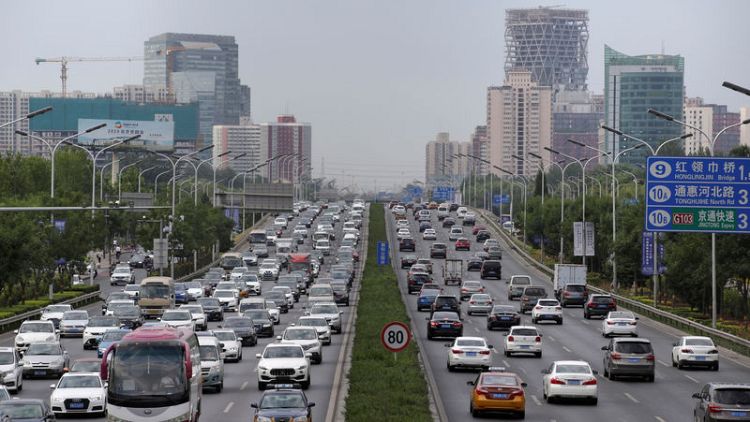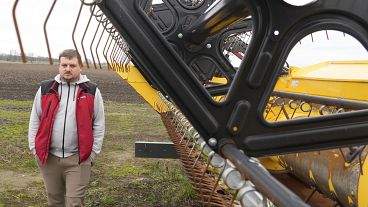By Ben Klayman
DETROIT (Reuters) - Many global auto suppliers are striking an even more pessimistic tone about Chinese vehicle output this year than some research firms, with the suppliers bracing for the pain to be far greater than the single-digit percentage declines predicted by some in the industry.
There have been 12 straight months of falling sales in the world's largest automotive market, and demand in China is expected to decline for the second straight full year. Fiat Chrysler Automobiles <FCHA.MI> on Wednesday cut its China industry sales outlook by 4%.
China auto sales have been hurt by a slowing economy and a bruising trade dispute with the United States that has hurt consumer confidence.
Exacerbating the industry's pain is the implementation of tougher emissions standards that has automakers slashing vehicle production so they are not stuck with vehicles they may not be able to sell. That has made planning tougher for suppliers, who focus on production figures and see a more severe decline ahead.
"It's an opaque situation," Aptiv <APTV.N> Chief Executive Kevin Clark told analysts on Wednesday. Aptiv makes advanced driver safety systems.
Clark questioned whether inventory levels in China are still inflated and said the company has cut jobs there in line with the production declines to keep costs under control. Aptiv is planning for China production to fall 15% in the third quarter and 13% for the year.
"We feel as though we've taken a fairly conservative position and balanced the risk and the opportunities in our current outlook. Is it possible that it could be worse? It is possible. We don't think it's likely," he added.
Research firm IHS Markit estimated this month that light vehicle production in China this year would fall 6.9% to 24.76 million vehicles from 26.61 million in 2018.
Clark is not alone in taking a more conservative stance given the declining demand and production. Several CEOs at auto suppliers on their earnings calls this month talked about double-digit declines in output.
Garrett Motion <GTX.N> CEO Olivier Rabiller said on Tuesday the company was changing its full-year production forecast for China to a decline of 10% from its prior forecast for an 8% drop. The company reduced its 2019 financial outlook as a result.
"We are a little bit more pessimistic than the consensus of the industry," he said.
On July 19, Gentex Corp <GNTX.O> Chief Executive Officer Steven Downing said the company made a point of planning more pessimistically for the second quarter than IHS had predicted.
"We did make some manual adjustments to the IHS data, which actually served us pretty well," he said. "We're taking the same approach in the back half of this year."
BorgWarner Inc <BWA.N>, which slightly lowered its 2019 profit forecast, is now planning for a decline in China of 10% to 14% for the year.
"We want to share that realistic outlook," CEO Frederic Lissalde said July 25. "That is our best guess."
Like several suppliers, BorgWarner talked about outperforming the weak market.
Visteon Corp <VC.N> on July 25 said it grew 30% in China in the second quarter and has added $1 billion in new business there year to date. It credited new product launches and upgraded content in vehicle cockpits, including a deal with an unnamed automaker for a next-generation infotainment system.
Visteon Chief Executive Sachin Lawande said growth in China compared with earlier expectations would be "muted" and the company now expects industry production for the year to fall 10%, compared with a prior forecast for a 4% decline. Visteon cuts its full-year profit outlook.
Lear Corp <LEA.N> said on July 26 that the midpoint of the company's outlook assumed China industry production would fall more than 20%.
Of course, the trade tensions between the United States and China could further upset plans.
Aptiv has reduced the hit from trade tariffs between the countries to $44 million from $75 million previously, and Clark sees that climate as permanent rather than temporary. The company has shifted production from China to South Korea to cut costs as a result.
(Reporting by Ben Klayman in Detroit; Editing by Matthew Lewis)



